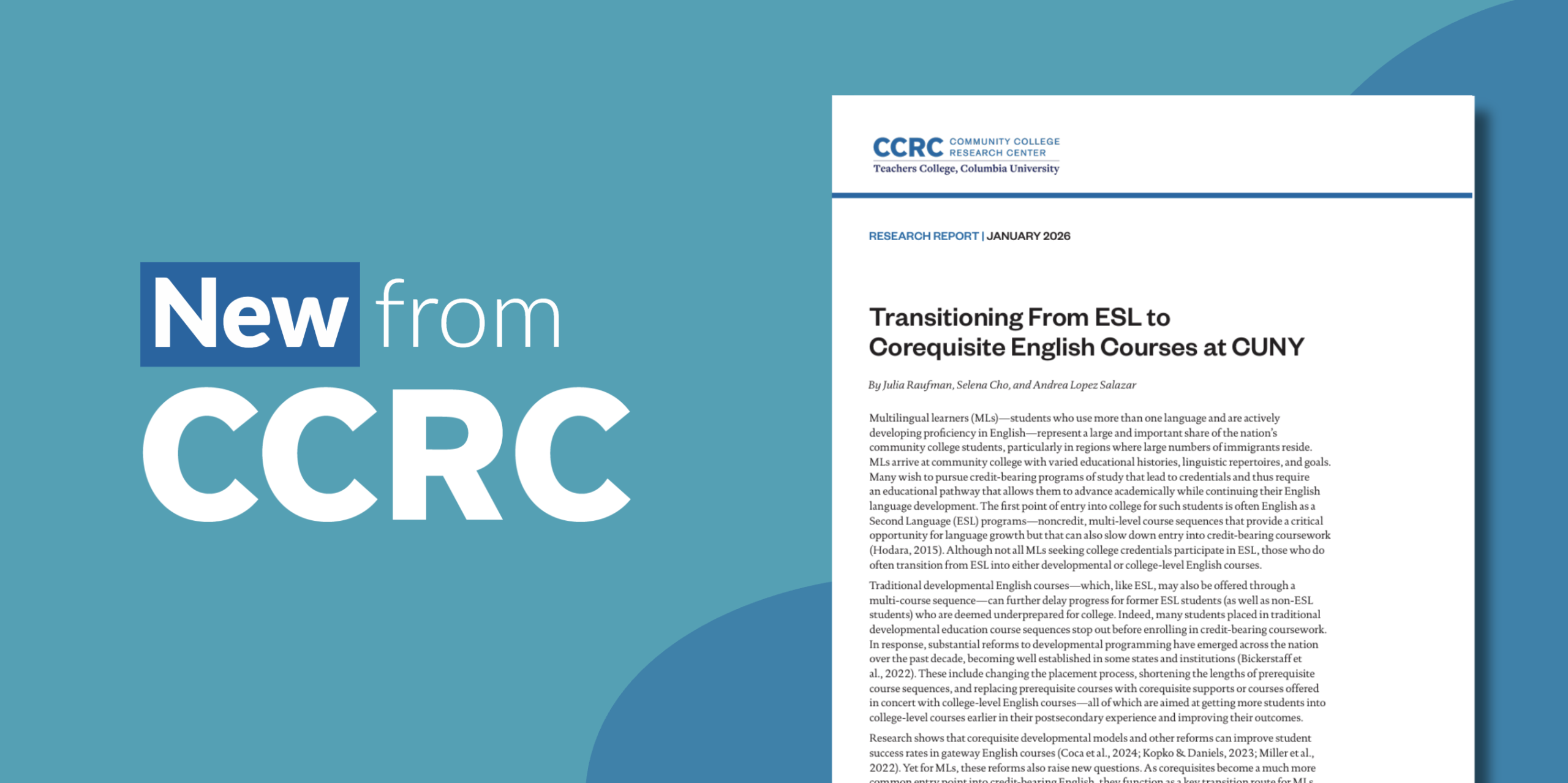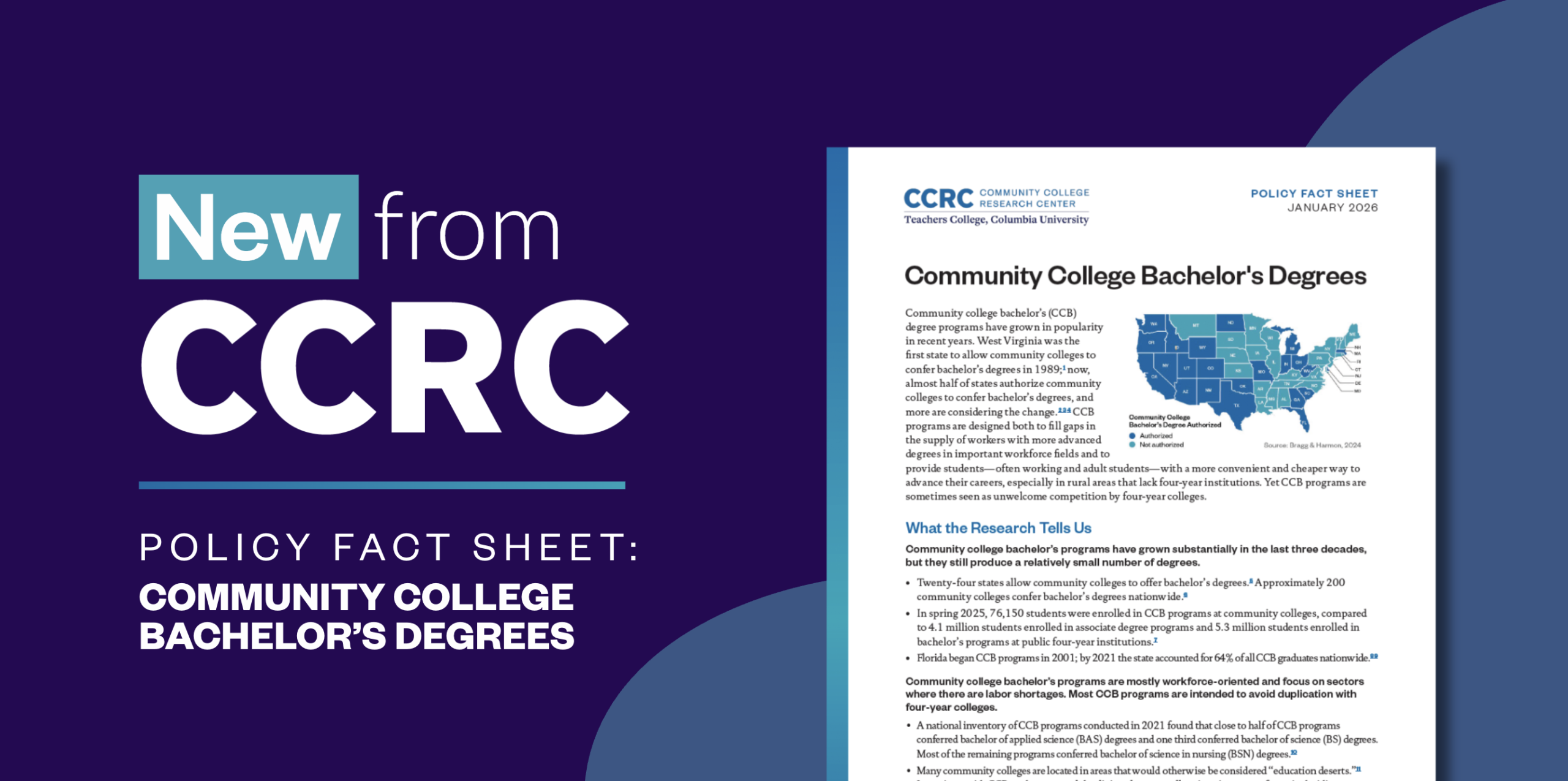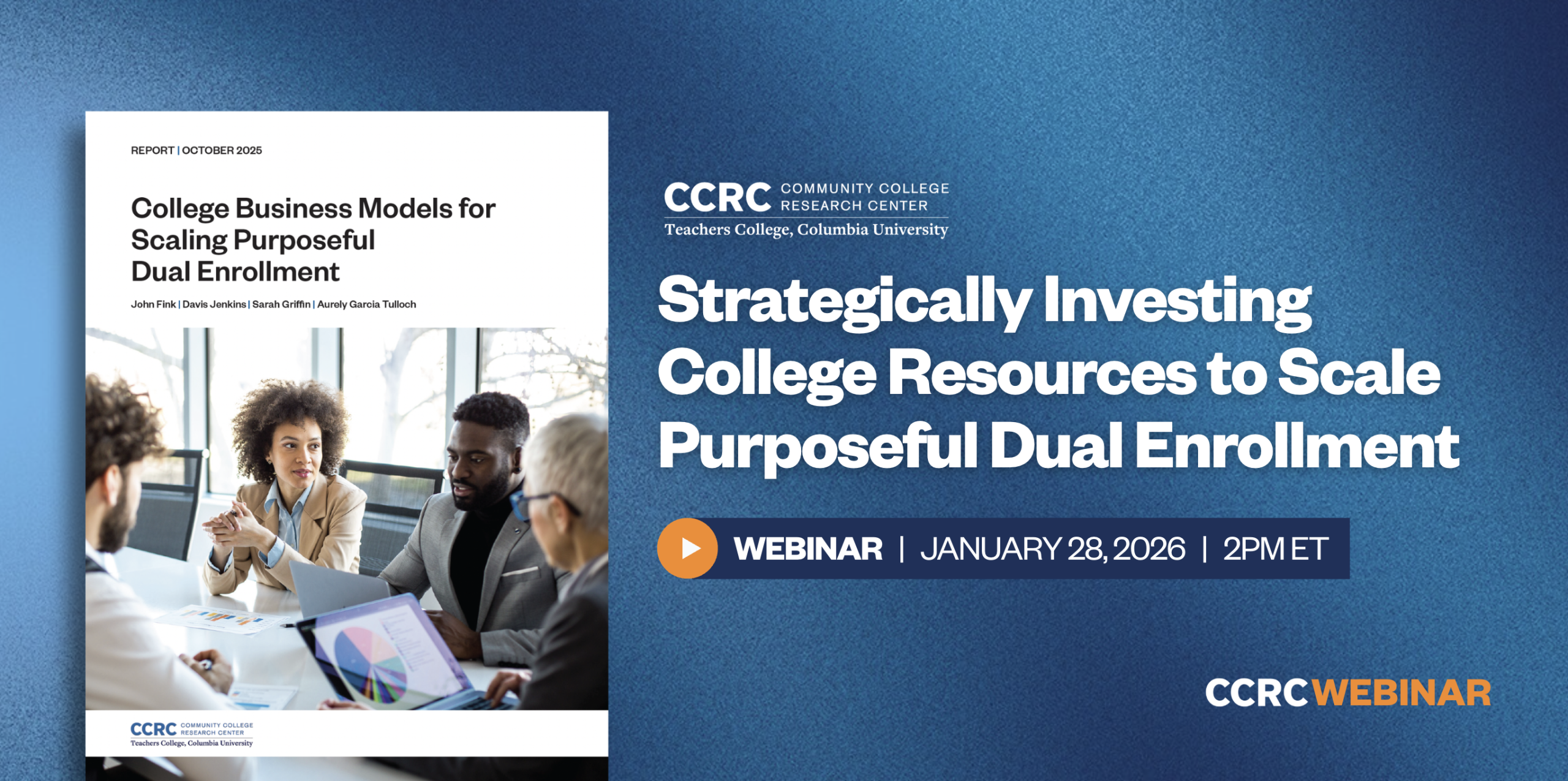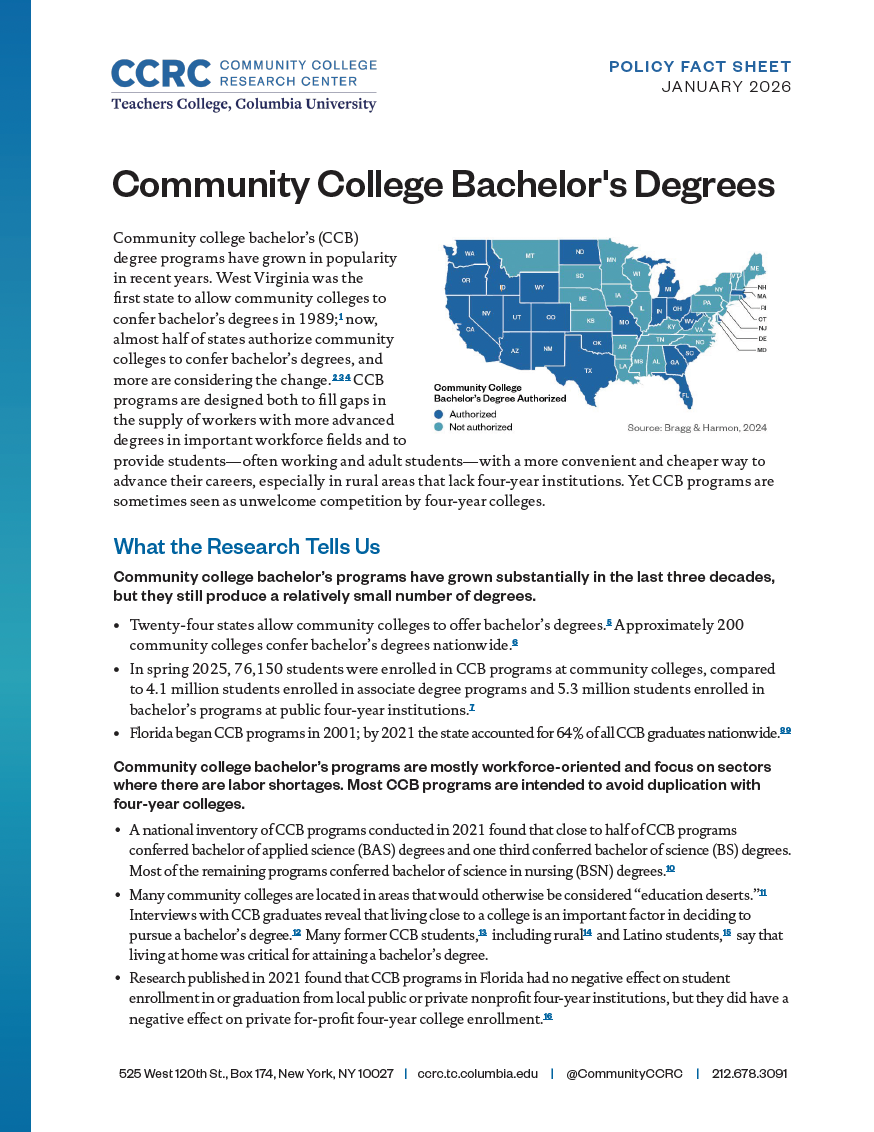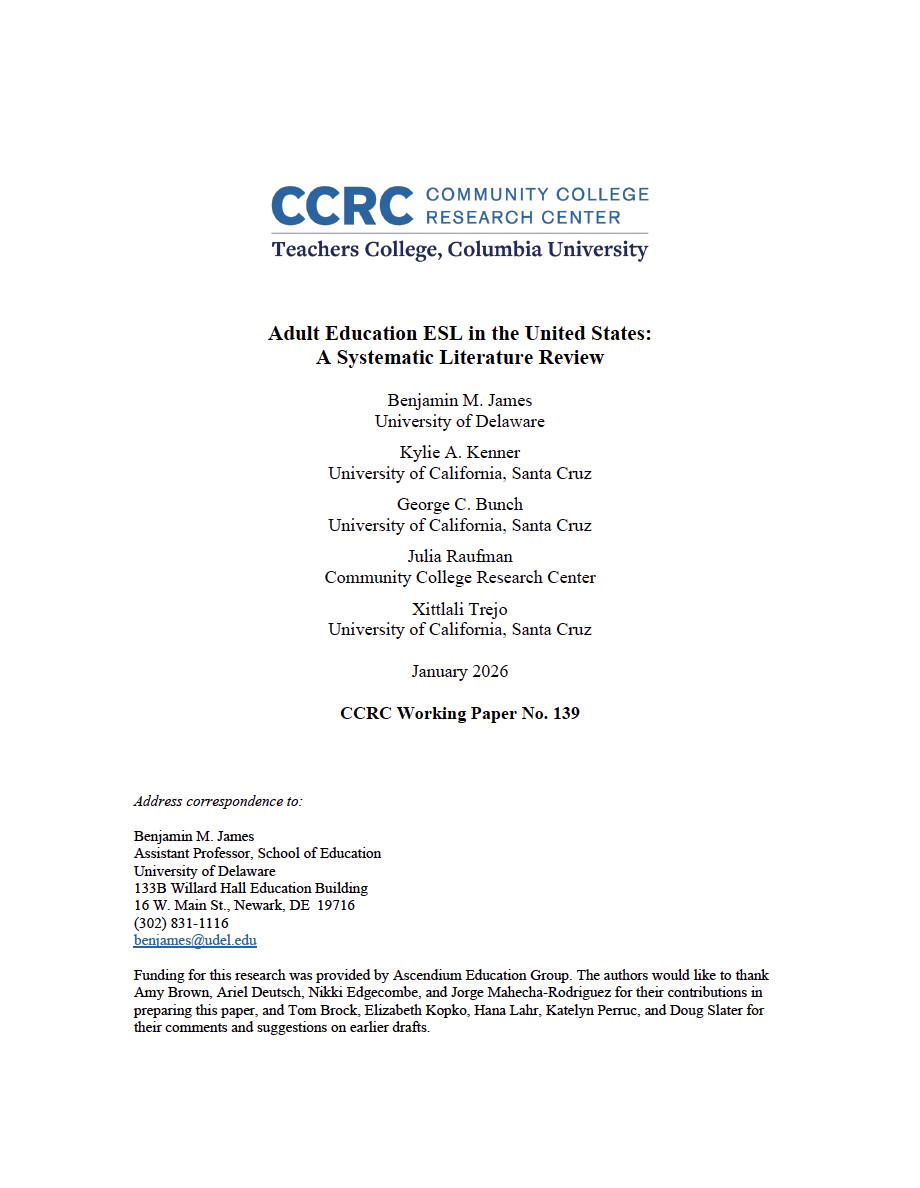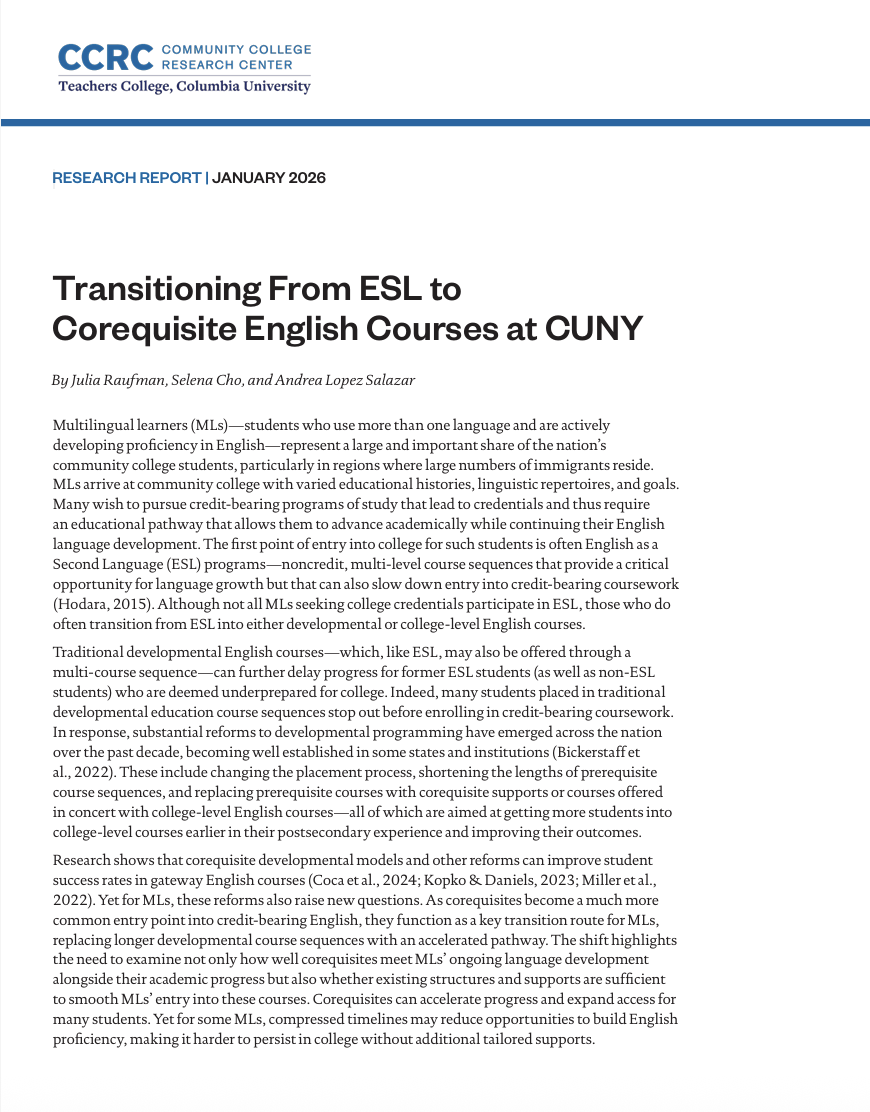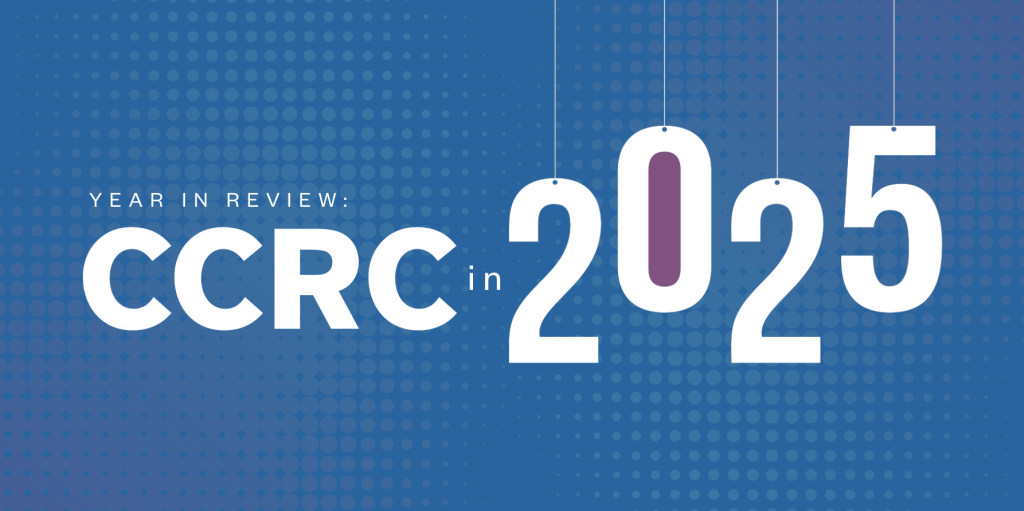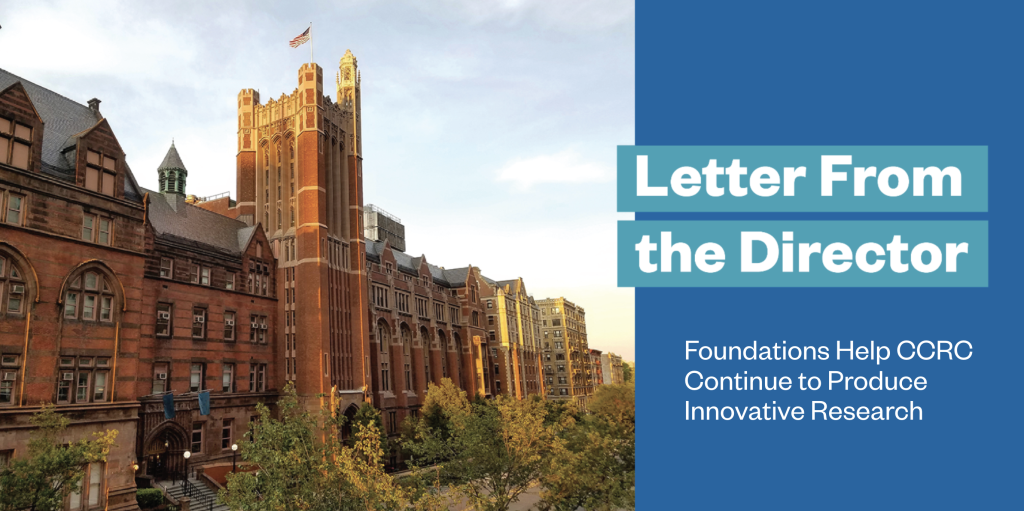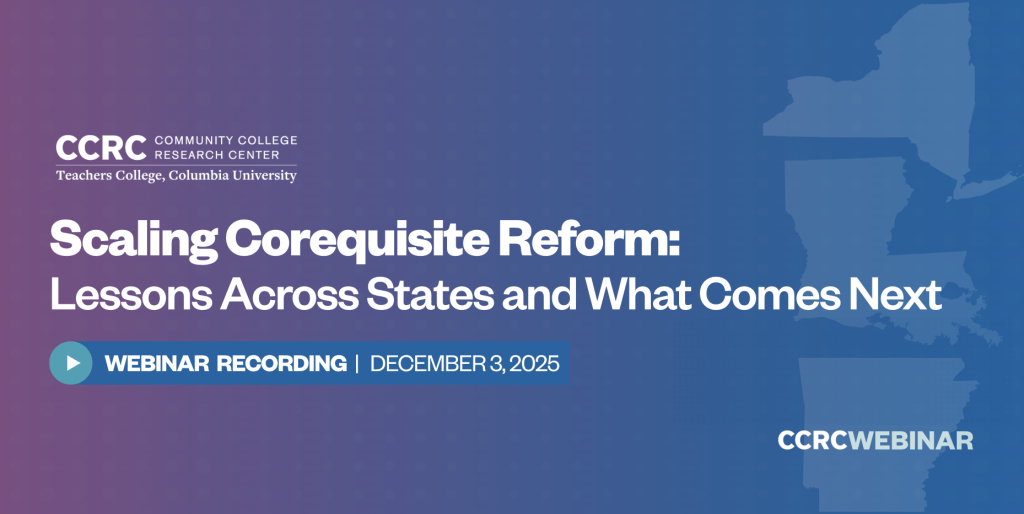Our research provides a foundation for innovations in policy and practice that help give every community college student the best chance of success.
Featured Publication
january 2026
This report describes how placement processes, departmental structures, ESL course sequences, and instructional models at five CUNY community colleges shape learners’ access to and experiences in corequisite or standalone college-level English courses.
View report >
Benjamin M. James, Kylie A. Kenner, George C. Bunch, Julia Raufman & Xittlali Trejo
Julia Raufman, Selena Cho & Andrea Lopez Salazar

